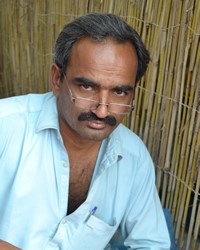Sindhi in Malaysia

Photo Source:
Khalid Mahmood - Wikimedia
Creative Commons
|
Send Joshua Project a map of this people group.
|
| People Name: | Sindhi |
| Country: | Malaysia |
| 10/40 Window: | Yes |
| Population: | 33,000 |
| World Population: | 528,700 |
| Primary Language: | Sindhi |
| Primary Religion: | Hinduism |
| Christian Adherents: | 1.00 % |
| Evangelicals: | 0.00 % |
| Scripture: | Complete Bible |
| Ministry Resources: | Yes |
| Jesus Film: | Yes |
| Audio Recordings: | Yes |
| People Cluster: | South Asia - other |
| Affinity Bloc: | South Asian Peoples |
| Progress Level: |
|
Introduction / History
The Sindhi are one of India and Pakistan's oldest people groups. They believe their earliest ancestors came from the region where the Indus River flows into the Arabian Sea. They are named after the Indus River, which in Arabic is called the Sindhu River. They come from the Sindh region, which is part of Pakistan. In the 1880s, the Sindhi began establishing themselves in the Malay Peninsula, settling mainly in Penang, Selangor, Kuala Lumpur, Ipoh, Malacca, Johor Baru, and Alor Setar as merchants. With the partition of Pakistan from India in 1947, large number of families moved to Malaysia. The Sindhi formed a small but financially successful North Indian community, catering mainly to the textile and tailoring needs of the colonial market.
Unlike other Indian groups in Malaysia during the 19th century who worked in civil administration or plantation work, the Sindhi community had a well-established recruitment agency in Sindh, which employed Sindhi to work with Sindhi firms all over the world, including Malaysia. Newcomers came with the intention of venturing out to establish new work as soon as possible. They worked hard, saved their money, and eventually, started their own business.
What Are Their Lives Like?
The Sindhi in Malaysia venture into real estate, electronics, departmental stores, entertainment, food, jewelry, and of course textiles and tailoring. The younger generation is moving into professions such as medicine, engineering, law, and accounting. The Sindhi language is pre-Sanskrit. They borrowed from Sanskrit, Arabic, Persian, Hindi, and English. Despite strict observance of traditional norms and values, each generation is losing proficiency in the Sindhi language.
Sindhi prefer to marry within their community due to their cultural, linguistic, and religious upbringing. Marriages are often arranged with Sindhi from other countries. Arrangements are made to bring parties together and if all goes well, the marriage is set.
What Are Their Beliefs?
Almost all Malaysian Sindhi are Hindu. Only a small minority is Muslim. The Sindhi's religion bears elements of mysticism, Sufism, Sikhism and Hinduism. Their main deity is Jhoolay La'al-u (an Indus god who is believed to have traveled throughout Sindh on a palla fish). The Sindhi celebrate Cheti-Chand (the birth anniversary of their deity) in April, as their New Year. On the beginning of each month of their calendar, the Sindhi observe Chand (prayers and worship) and end with the Aarthi (waving a lit lamp in front of their deity using an herbal oil called camphor) and dinner.
What Are Their Needs?
Even though some of the Sindhi become economically successful, there are those who are unemployed or earning very low wages. Pray for the much-needed assistance to the Sindhi living below the poverty level. Pray for local Indian believers to relate and respond to the needs of the Sindhi.
Prayer Points
Pray for the Lord to thrust out workers.
Pray for Hindu Sindhis to experience and embrace God's glory and goodness.
Pray for spiritual hunger among the Sindhis in Malaysia, leading them to the cross.